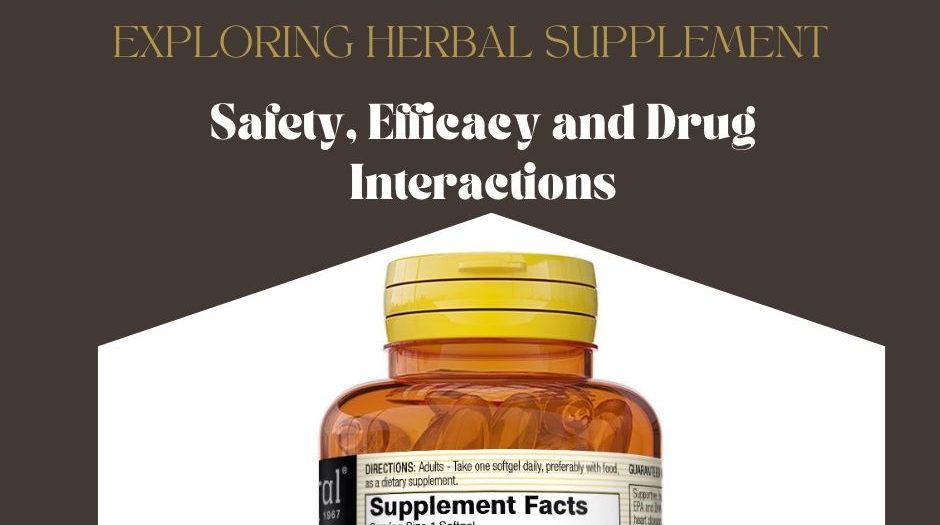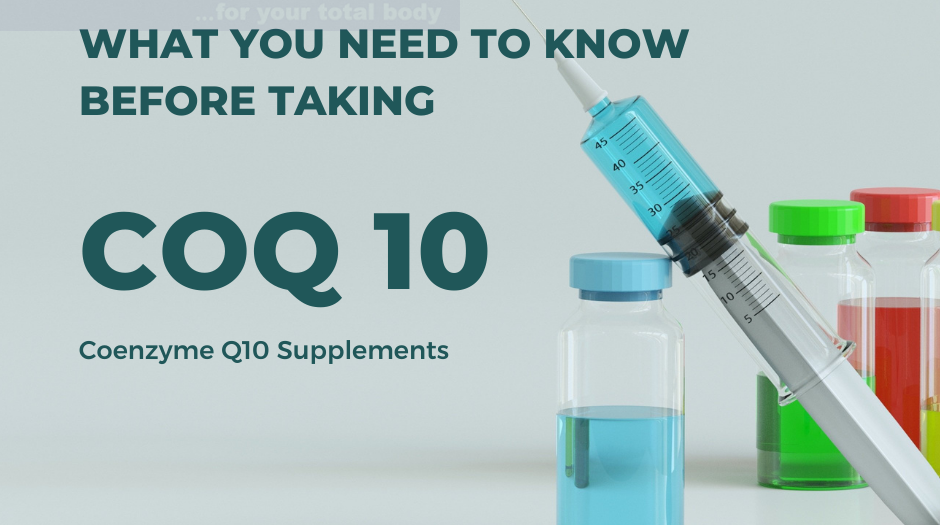Exploring Herbal Supplements: Safety, Efficacy, and Drug Interactions
Introduction
In recent years, more people have been interested in using herbal supplements as natural remedies to improve their health. These supplements are derived from plants and are marketed as alternative approaches to wellness. However, it's important to understand their safety, effectiveness, and how they may interact with prescription medications. In this article, we will explore herbal supplements, including their benefits, potential risks, and interactions with conventional drugs.
Safety of Herbal Supplements
Many people assume that herbal supplements are automatically safe because they come from natural sources. However, this is not always the case. Herbal supplements contain active compounds that can have effects on the body, and some may have risks or side effects.
Potential Risks and Side Effects
While herbal supplements can offer health benefits, it's crucial to be aware of potential risks and side effects. Some herbs may cause allergic reactions, interact with medications, or have adverse effects on certain individuals. For example, St. John's wort, a popular herbal supplement for depression, can interact with antidepressant medications, reducing their effectiveness. Some herbal supplements may also have a blood-thinning effect, which can be problematic for individuals taking anticoagulant drugs.
Benefits of Herbal Supplements
Certain herbal supplements may have beneficial effects on specific health conditions or symptoms. For example, echinacea has been studied for its potential to prevent or treat upper respiratory infections, while garlic is believed to lower blood pressure and cholesterol levels. Ginkgo biloba may improve memory and cognition, and ginseng is thought to enhance physical and mental performance. St. John's wort may help with mild to moderate depression, and turmeric may have anti-inflammatory and antioxidant properties. However, it's important to note that the evidence for the effectiveness of herbal supplements is often limited and inconsistent. The quality, dosage, and preparation of the supplements can also affect their efficacy.
Regulation and Quality Control
Herbal supplements are regulated differently in various countries. In Nigeria, for example, herbal supplements are regulated as food supplements by the National Agency for Food Drugs Administration and Control (NAFDAC).
NAFDAC establishes guidelines and standards for the registration, manufacturing, labeling, and distribution of herbal supplements. The agency conducts inspections, quality control assessments, and surveillance to ensure compliance with these regulations.
NAFDAC's regulations aim to safeguard public health by ensuring that herbal supplements meet the necessary quality and safety standards before they can be marketed and sold in Nigeria. This includes requirements for product registration, labeling, and adherence to good manufacturing practices.
Efficacy of Herbal Supplements
Determining the effectiveness of herbal supplements can be challenging due to the limited scientific research available. Unlike pharmaceutical drugs, herbal supplements often lack the same level of scientific scrutiny. While some herbal supplements have shown positive effects in studies, more research is needed to establish their efficacy for specific health conditions. It is crucial to approach claims made by supplement manufacturers with caution and seek evidence-based information from reliable sources.
Commonly Used Herbal Supplements
There are numerous herbal supplements that are popular among consumers. Here are some commonly used ones and their purported benefits:
1. Echinacea: Often used to boost the immune system and prevent colds and flu.
2. Garlic: Believed to have cardiovascular benefits, such as lowering blood pressure and cholesterol levels.
3. Ginkgo biloba: Claimed to improve cognitive function and memory.
4. Turmeric: Known for its anti-inflammatory properties and potential benefits in managing conditions like arthritis.
5. Valerian root: Used to promote relaxation and improve sleep quality.
Interactions of Herbal Supplements with Other Drugs
One of the main concerns with herbal supplements is their potential to interact with other drugs, either by enhancing or reducing their effects. These interactions can lead to unexpected outcomes, such as increased toxicity, reduced effectiveness, or changes in how drugs are processed by the body. Some interactions can be life-threatening, particularly for individuals who take multiple medications or have chronic conditions.
Preventing and Managing Herb-Drug Interactions
To reduce the risk of herb-drug interactions, it is generally advised not to take herbal supplements and prescription or over-the-counter drugs at the same time unless instructed by a healthcare professional. However, if you do use herbal supplements, here are some tips to minimize the risk:
1. Inform your healthcare provider about all the herbal supplements and drugs you are taking or planning to take. They can check for possible interactions and adjust your treatment plan accordingly.
2. Read the labels and instructions of herbal supplements and drugs carefully. Follow the recommended dose and frequency, and pay attention to any warnings or precautions.
3. Monitor your response to herbal supplements and drugs. If you notice any unusual or unexpected reactions, inform your healthcare provider.
4. Store herbal supplements and drugs separately and securely, away from children and pets.
5. Seek reliable and up-to-date information about herbal supplements and drug interactions from trusted sources, such as scientific studies or professional organizations.
Conclusion
Herbal supplements can be a natural approach to wellness, but it's important to be cautious and informed about their safety, effectiveness, and potential interactions with prescription medications. Consulting with healthcare professionals and relying on reputable sources of information can help individuals make informed decisions regarding the use of herbal supplements. By combining evidence-based knowledge with personalized guidance, individuals can navigate the world of herbal supplements effectively and prioritize their well-being.



